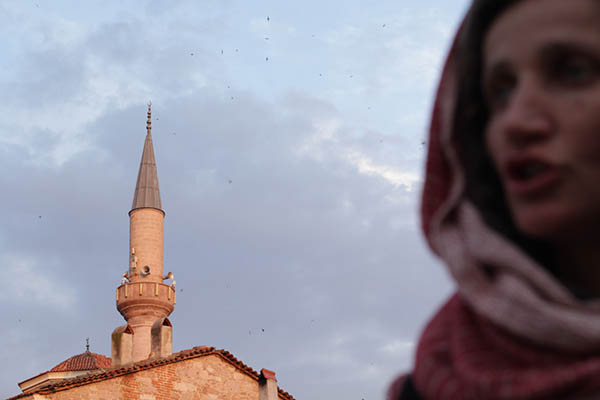My first journey to Turkiye, was in the company of Fausto, the Maestro, a majestic big black dog with whom we crossed Europe together. Our vehicle was a VW carthago that drove us from the Oriental-Pyrenees to the threshold of the east, Istanbul.
The fishermen by the Bosphorus, with all the seagulls doing all kinds of tricks to get one of the fisherman´s fish, the boats to cross from the European side as they called it, to the Asian side. Hagia Sophia, before a church, then turned into a musk. Kind of like the Che-Guevara for the Cubans, Mustafa Kemal Atatürk, was almost in every wall of every establishment, office and stores I walked in. The Bazar, full of color and movement, the streets with a flow of people dressed very traditionally, from fundamentalist to very liberal; Istanbul, which does not necessarily represent Turkish culture in a larger sense of the country, is a fascinating fusion between western and eastern culture that makes this city unique in the world.
Surrounding along the Black sea with its dark obsidian waves, I arrived to the small village of Rize; there, abundant plantations of black tea fill the hilly landscape. In Rize, I had the opportunity to stay with a Turkish family; it was right in the time of the year when they celebrate Kurban, “celebration of sacrifice”. In Muslim religion, each family sacrifices an animal for Kurban; one part, it is offered to family members and friends, and the other one, to people who are in need of food.
Culturally, and for the most part, Turkish families are very united and it is not uncommon to see a family house, where more levels for future apartments are being build in order to provide their children a house where they will be able to live in their adulthood lives.In both of my journeys throughout Türkiye, I did not see a single person without a roof; this says a lot about a society, about it´s values, it´s unity and it´s character.
Most women are very crafty and skillful with their hands, often they gather, talk, drink tea, snack baklava, while they knit or do crochet. Men like to go to the tea shops where they drink black tea, talk and play tablas, or scramble.
Throughout my road trip, I was treated very kindly by the people keeping gas stations who will come to me as I bumped my gas with a plate to offer tea and fruits; also stopping at small villages, I had locals offering me fish to eat. I felt that there was a general generosity from people towards each other and towards travellers and foreigners like me.
From Rize, I went crossing south Anatolia until wintery Kapadokya. I´ve been to this area twice, and both times were so different. The first time I arrived, was so cold and thanks to my little Turkish stove, I could bare sleeping in the streets of the magical little town called Göreme. The place was empty, only echoes of very far away times whispering through the caved landscape of mushroom looking kind of rocks with infinite mystery. I remember getting so lost following the footsteps on the snow of my shadow friend Fausto, who lightly explored the places with great curiosity. My second trip to Kapadokya, was in the Summer and it was a whole other experience all together, then, I did not only do unending walks where I will always find new passages that lead to living spaces full of symbols and frescos in their walls; but I also travelled through the unfathomable mystery of the Ilhara valley. A section of this web-site, is dedicated to Kapadokya, I invite you to go and travel through it with the visions I brought back from it.
Although I was far away from home, I definitely felt the Mediterranean culture connection or invisible threat that connected us as a Mediterranean culture from one end to the other. In the other hand, I had never seen ruins, that magnificently rising up from deep in the sea, as well as such ancient olive trees along the coast of the Aegean sea or amongst millenary ruins such as Ephesus; the cradle of philosophy and thought; or Troja, land of Greek Gods and Goddesses, poets and battles…


